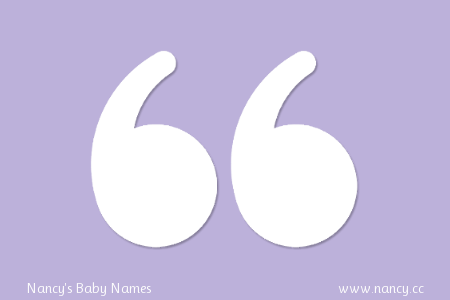Looking for baby names that feature the appealing letter-pair PH?
I’ve collected hundreds of options for you in this post!
Before we get to the names, though, let’s get one big question out of the way…
Why does PH sound like “F”?
In English, PH is a digraph, which means that it’s a pair of letters that make a single sound. (It’s interesting that the word “digraph” contains a digraph, isn’t it?)
Most of the English words that have PH were derived from Greek — specifically, from Greek words that included the Greek letter phi:
In ancient times, the Greek letter phi made an aspirated P-sound. (The unaspirated P-sound, on the other hand, was made by the Greek letter pi.)
When Greek was transliterated into Latin, the letter phi was written as “ph” to denote this aspiration — that is, to signal that the letter “p” was accompanied by a brief puff of air.
So, what happened?
In the first several centuries A.D., the pronunciation of the Greek letter phi changed. It slowly evolved from an aspirated P-sound into an F-sound.
As a result, the letter-pair “ph” underwent a corresponding (though somewhat illogical) pronunciation change. It, too, came to represent an F-sound — and still does to this day.
Now, on to the names!
Names with PH
Below you’ll find a long list of names that contain the letter-pair PH. Many of these names come directly from the U.S. SSA’s baby name data. Others are ancient names that aren’t used much (if at all) in modern times.
- Aleph
- Alpha
- Alphaeus
- Alpharetta
- Alphie
- Alphonsa
- Alphonse
- Alphonsine
- Alphonso
- Alphonsus
- Amphion
- Amphirho
- Amphithea
- Aphaea
- Aphra
- Seventeenth-century writer Aphra Behn was one of the first English women to earn her living by writing.
- Aphrodite
- Apphia
- Asaph
- Caliph
- Cephas, Cephus
- Christoph, Christophe
- Christopher, Kristopher
- Christophine
- Cleopha
- Cléophée
- Cleophas, Cleophus
- Cypher
- Daphna
- Daphne, Daphnie, Daphney, Daphni, Daphnee
- Delpha
- Delphi
- Delphia
- Delphin
- Delphina
- Delphine
- Delphinus
- Demophon
- Dolph
- Dolphus
- Dymphna
- Elaphia
- Eliphalet, Eliphelet
- Eliphas, Eliphaz
- Elpha
- Ephesius
- Ephraim
- Ephram
- Ephratah
- Ephrem
- Epiphanius
- Epiphany
- Eugraphia
- Eugraphius
- Euphemia
- Euphemius
- Euphoria
- Euphranor
- Euphrasia
- Euphrasie
- Euphrasius
- Glaphyra
- Gryphon
- Hephaestus
- Hephzibah
- Humphrey
- Ildephonse
- Iphigenia
- Iphis
- Japheth, Japhet, Yaphet
- Jehoshaphat
- Jephthah ,Jephtha
- Josaphat
- Joseph, Ioseph
- Josepha
- Josephina
- Josephine
- Josephus
- Memphis
- Morpheus
- Murphy, Murphie, Murphee, Murphey
- Mustapha, Moustapha
- Naphtali, Nephtali
- Nephele
- Nephi
- Nephthys
- Nicéphore
- Onuphrius
- Ophelia
- Ophélie
- Ophir
- Ophira
- Ophrah
- Orpha
- Orpheus
- Orphia
- Pamphilus
- Persephone, Persephonie, Persephony
- Phaedra
- Phaedrus
- Phaenna
- Phanuel
- Pharaildis
- Pharamond
- Pharaoh
- Pharez
- Pharrell
- Phelan
- Phelim
- Philbert, Philibert
- Phileas
- Philemon
- Philetus
- Philia
- Philinda
- Philina, Philena
- Philine, Philene
- Philip, Phillip, Philipp
- Philippa, Phillipa
- Philippe
- Philo
- Philomel
- Philomela
- Philomena
- Philon
- Philopateer, Philopater
- Philotera
- Phineas, Phinehas
- Phoebe, Phebe
- Phoenicia
- Phoenix
- Photina
- Photine
- Photius
- Phronsie
- Phryne
- Phylicia
- Phyllida
- Phyllis, Phillis
- Porphyrius
- Prophet
- Ralph
- Ralphie
- Ralphine
- Randolph
- Rapha
- Raphael
- Raphaela
- Raphaëlle
- Rodolph
- Rolph
- Rudolph
- Saphina
- Saphira, Sapphira, Saphyra
- Sapphire
- Sephira
- Sephiroth
- Sephora
- Seraph
- Seraphia
- Seraphim
- Seraphin
- Seraphina, Saraphina
- Seraphine
- Shiphrah
- Sophia, Sophya
- Sophie, Sophi, Sophee
- Sophilia
- Sophina
- Sophonie
- Sophonisba
- Sophron
- Sophronia
- Sophronius
- Sophus
- Stephania
- Stephanie, Stephany, Stephani
- Sylphrena
- Sypha
- Symphony
- Télesphore
- Theophanes
- Theophania
- Theophila
- Theophilia
- Theophilus
- Triumph
- Tryphena
- Tryphon
- Tryphosa
- Xenophon
- Zelpha
- Zephan
- Zephaniah
- Zephyr
- Zephyra
- Zephyria
- Zéphyrine
- Zephyrus
- Zilpha
- Zilphia
Which of the PH names above to do you like most? Let me know in the comments!
Sources: Phee-phi-pho-phum – The Grammarphobia Blog, SSA
Image: Adapted from Fasan3 by Ragnhild & Neil Crawford under CC BY-SA 2.0.


